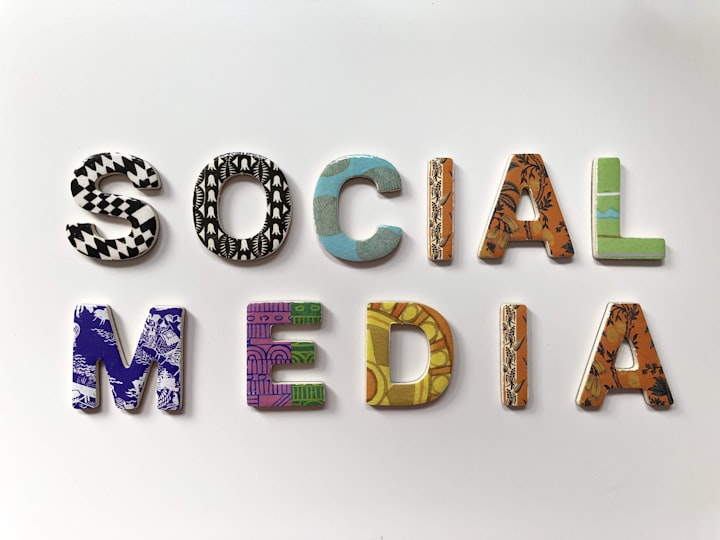The effects of social media on our daily life
Big impacts, small expectations
Like how many things can affect our mental health, there is one aspect that may seem a little unexpected with a little twist.
Social Media.
While social media can be used for many good and informational purposes, there are some negative aspects.
For example, cyberbullying. Cyberbullying means the use of electronic devices to bully a person or to inflict distressing emotions on them.
This can result in the person being bullied becoming depressed, lack of confidence, anxiety, insomnia, suicidal ideation, the avoidance to talk in general, and academic issues if they are a student.
This may seem like a small aspect, but it can have a significant impact on a person's mental health. The constant exposure to negative comments, hate, and comparison on social media platforms can lead to feelings of worthlessness and inadequacy.
Moreover, social media can also contribute to the development of addictive behaviors. The need for validation and constant engagement with social media platforms can become compulsive, leading to neglect of real-life relationships, work or school responsibilities, and can even cause problems with sleep patterns.
Another factor that affects mental health is the carefully curated and filtered posts on social media. People tend to only post the highlights of their lives, creating an illusion of perfection that others may strive to achieve. This can result in feelings of envy, inadequacy, and a distorted sense of reality. Constantly comparing oneself to others' seemingly perfect lives can have detrimental effects on self-esteem and overall mental well-being.
Moreover, the constant exposure to unrealistic beauty standards and highly edited images can impact body image and self-perception. This can lead to body dissatisfaction, eating disorders, and other harmful behaviors as individuals strive to fit into an idealized image.
Furthermore, excessive use of social media can also contribute to feelings of loneliness and isolation. It may create a false sense of connection, substituting real social interactions with virtual ones. Spending excessive amounts of time on social media can lead to detachment from real-life relationships, causing a decline in mental health and social skills.
Finally, the constant need to conform to the online world's expectations can lead to feelings of pressure and stress. The fear of missing out (a.k.a FOMO) and the pressure to constantly present a desirable image online can contribute to anxiety and even depressive symptoms.
Other potential negative effects of social media on mental health include the spread of misinformation, leading to feelings of confusion and anxiety, as well as the tendency to engage in "doomscrolling" or constantly consuming negative news and posts, which can exacerbate feelings of stress and overwhelm.
Furthermore, social media can also contribute to feelings of loneliness and exclusion, especially for individuals who perceive themselves as being left out or not included in social activities that are shared online. This can lead to a sense of isolation and a decline in overall well-being.
In addition, social media platforms often prioritize content that generates engagement, such as likes, comments, and shares. This can create a culture of seeking external validation and approval, which can impact self-esteem and self-worth. The constant need for validation can also affect a person's perception of their own value and identity.
The addictive nature of social media can also have detrimental effects on mental health. The constant bombardment of notifications and the instant gratification that comes with receiving likes or comments can create a sense of dependency and obsession. This addiction can lead to a decrease in productivity, difficulty focusing, and even withdrawal symptoms when attempting to reduce social media usage.
Moreover, social media can lead to a phenomenon called social comparison, where individuals compare themselves to others within their social networks. This constant comparison can lead to feelings of inadequacy, jealousy, and low self-esteem, as individuals perceive others as being more successful, attractive, or happy.
Finally, the pressure to maintain a curated and "perfect" online persona can lead to feelings of inauthenticity and strain on mental well-being. Having to constantly present oneself in a positive and desirable light can create stress and anxiety, as individuals feel the need to hide their vulnerabilities and maintain a flawless image.
It is important to recognize and address these potential negative effects of social media on mental health. Taking breaks from social media, engaging in offline activities, seeking support from friends and loved ones, and practicing self-care can all be beneficial in promoting mental well-being in the digital age.
About the Creator
Feathermoon
-all of my articles aren’t sponsored
-freelance writer
-essie (keala) :D
-follow me on medium! effiekeala.medium.com
-bay area







Comments (1)
Your work is truly commendable. I found it to be very well crafted and enjoyed reading it a lot.